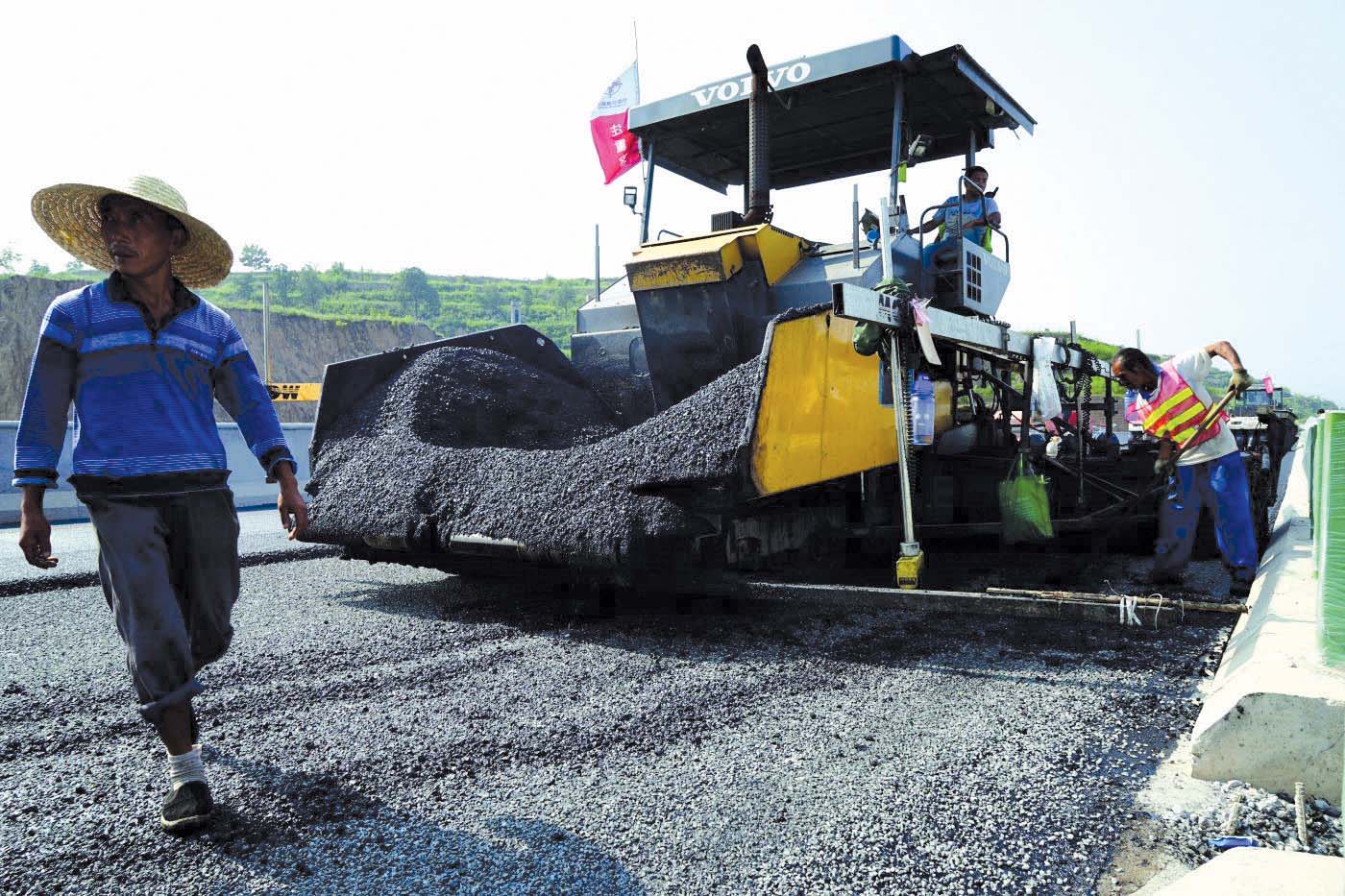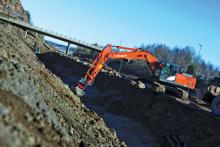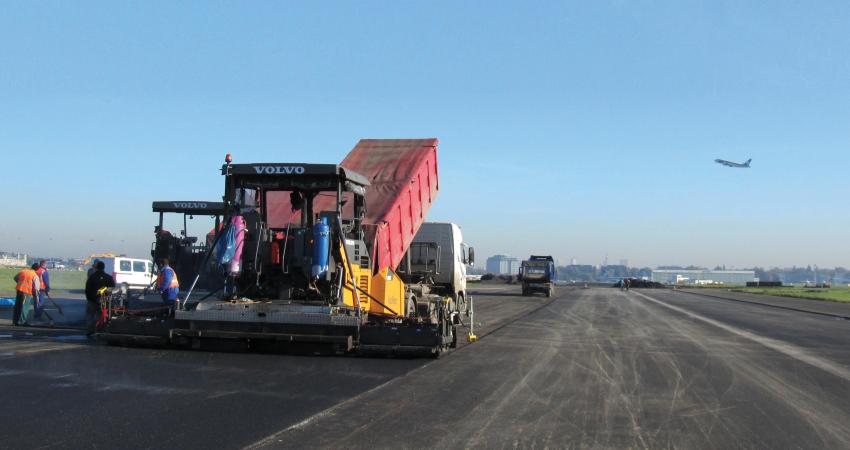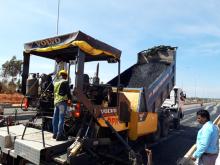
Asphalt is used mainly for the construction and maintenance of roads, and as demand for such infrastructure takes off worldwide so demand for the product grows.
A blend of aggregates, binder (usually bitumen) and filler is used in the different layers of a highway pavement, and today is produced and laid using sophisticated equipment.
Xi’an, north-west China, home to the famous Terracotta Warriors, was once the country’s imperial capital where, over 2,000 years ago, Emperor Qin Shi Huang had a passion for building. He began work on the Great Wall, built the warriors to protect him after his death, and constructed the country’s first road network.
China’s road-building programme is now rather more ambitious, with more than 10,000km of new highway being completed each year. North of the city four
The highway will relieve pressure on often-blocked local roads, and the Shaanxi Road and Bridge Group, which won the ¥5.7 billion (€716 million/US$928 million) contract to build the new toll road, believes the inclusion of Volvo machines in its bid played a part in winning the tender for the four-lane highway.
New Chinese road-building standards require a surface to last 15 years, although few roads actually meet those requirements.
“From what we have seen elsewhere in China, Volvo tracked pavers in Shaanxi Province with its ABG double-tamper technology can certainly produce a more durable road surface,” says Zhao Wei, the company’s equipment manager.
The expressway is part of a new six-highway network designed to boost urbanisation in this region and to capitalise on the millions of tourists who come to Xi’an to visit the Terracotta Warriors. It is vital infrastructure for the fast-developing Guanzhong-Tianshui Economic Zone intended to stimulate the inland economy that has lagged behind China’s booming coastal areas.
“Crucially, the new road will more than halve the travel time for shipments from the coal mines in Xunyi County at the northern end of the highway to the industries they supply around Xi’an,” says Guo Yong, project manage.
“The expressway will make the journey just over one hour, whereas its two-and-a-half hours now ... that will make a huge difference.”
Volvo CE says it is well established in Shaanxi province and as well as the main dealership in Xi’an, each of the province’s ten secondary cities has a Volvo-approved service workshop so customers know they will get help promptly when they need it.
Volvo CE claims it is already a market leader in tracked pavers in China even though they cost twice as much as some local Chinese brands. Duan Yanfei, who runs the Xi’an Volvo dealership, Tongguan Construction Machinery, is convinced that the higher road construction standards will work in Volvo’s favour in the future.
“In China, the competition is becoming fierce. We think some low-quality brands will leave the market. We’re confident that with our good service and good-quality machines we are going to occupy more of the Chinese market.”
Meanwhile, a new joint venture has been formed to operate in process optimisation and documentation in asphalt road construction.
MOBA Mobile Automation and Volz Consulting have created the jv, and the core of the new business is the formation of a software system for construction process optimisation developed by Volz Consulting, BauProzessOptimierung (construction process optimisation) or BPO Asphalt.
The system allows its users to plan and sequence tasks on construction sites simply and easily on-the-go, following the principles of Just-In-Time delivery.
The system also allows operators to network mixing equipment, the HGV transport chain and the construction site into a seamless unit and to manage processes in real-time. In addition, all temperature and sensor data from the MOBA-developed PAVE-IR Scan temperature measurement system is integrated into the BPO Asphalt system. The result is an overall system for process and quality management in asphalt paving.
According to the jv, the solution ensures that users can fulfil the soon-to-be-implemented quality and documentation requirements of the German Federal Ministry of Transport and Digital Infrastructure (BMVI) and to create the required paving and logistics schedules.
MOBA is currently developing a measurement system for thermally insulated dumpers, which is also set to be integrated into this system.
BPO Asphalt can be used on construction sites by operators with no previous experience, allowing construction companies to improve their paving quality, reduce costs and cut construction times.











